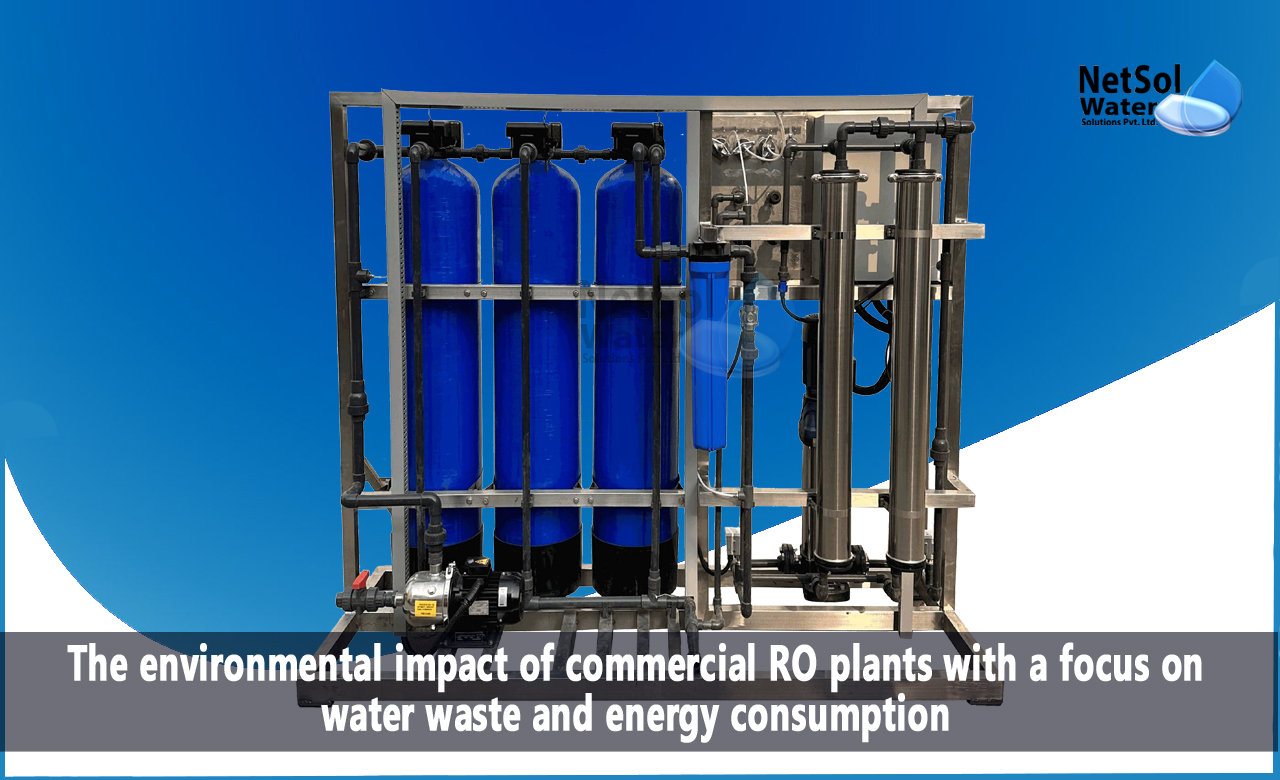The Environmental Impact of Commercial RO Plants
The world is facing a water crisis, and the demand for clean water is increasing at an alarming rate. In response, many businesses are turning to commercial Reverse Osmosis (RO) plants to meet their water needs. While these plants can provide a reliable source of clean water, they also have a significant environmental impact.
In this blog post, we will explore the environmental impact of commercial RO plants, with a focus on water waste and energy consumption.
Water Waste
One of the most significant environmental concerns associated with commercial RO plants is water waste. RO plants work by pushing water through a semi-permeable membrane, which separates the water from impurities. The purified water is then collected, while the impurities are discharged as waste. This process can be incredibly wasteful, with some estimates suggesting that up to 75% of the water that enters an RO plant is discharged as waste.
The amount of water wasted by an RO plant depends on several factors, including the quality of the source water and the efficiency of the plant. In some cases, the water that is discharged as waste can contain high levels of salt and other contaminants, which can harm local ecosystems. Additionally, the sheer volume of water wasted by RO plants can have a significant impact on water resources, particularly in areas where water is scarce.
Energy Consumption
In addition to water waste, commercial RO plants also consume a significant amount of energy. RO plants require a great deal of energy to operate, particularly during the water purification process. The energy required to power an RO plant can vary depending on the size of the plant, the quality of the source water, and the efficiency of the plant.
The energy consumption of commercial RO plants is a significant concern for two reasons. First, the energy required to power these plants contributes to greenhouse gas emissions, which contribute to climate change. Second, the high energy consumption of RO plants can make them expensive to operate, which can limit their accessibility to smaller businesses and organizations.
Chemical Discharge
Commercial RO plants often require the use of chemicals to prevent biofouling and other issues that can arise during the water purification process. These chemicals can include chlorine, hydrogen peroxide, and antiscalants. While these chemicals are necessary to keep the plant functioning properly, they can also have a negative impact on the environment if they are discharged improperly.
When these chemicals are discharged as waste, they can contaminate local water sources and harm local ecosystems. Additionally, the production of these chemicals can contribute to greenhouse gas emissions and other environmental concerns.
Land Use
Commercial RO plants can also have a significant impact on land use. These plants require a significant amount of space to operate, particularly if they are large-scale operations. This can lead to habitat destruction, deforestation, and other land-use issues, particularly in areas where land is scarce.
Additionally, the construction and maintenance of commercial RO plants can contribute to the release of greenhouse gas emissions and other pollutants, particularly if the plant is powered by fossil fuels.
Conclusion
Commercial RO plants can provide a reliable source of clean water, but they also have a significant environmental impact. The water waste and energy consumption associated with these plants are two of the most significant concerns. As the demand for clean water continues to increase, it is essential that we find ways to minimize the environmental impact of commercial RO plants. This may involve developing more efficient membrane technology, exploring alternative water treatment methods, or implementing policies and regulations to promote sustainability in the industry. By working together, we can ensure that our water needs are met without compromising the health of our planet.
If you are curious to know more, feel free to contact us at +91-9650608473 or enquiry@netsolwater.com



